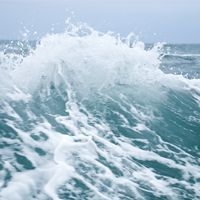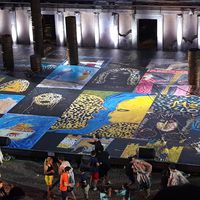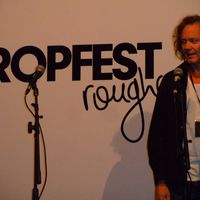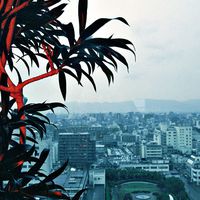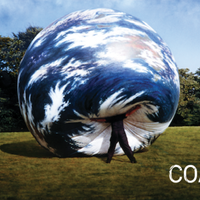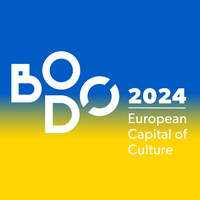If The Sea Breathes, We Breathe
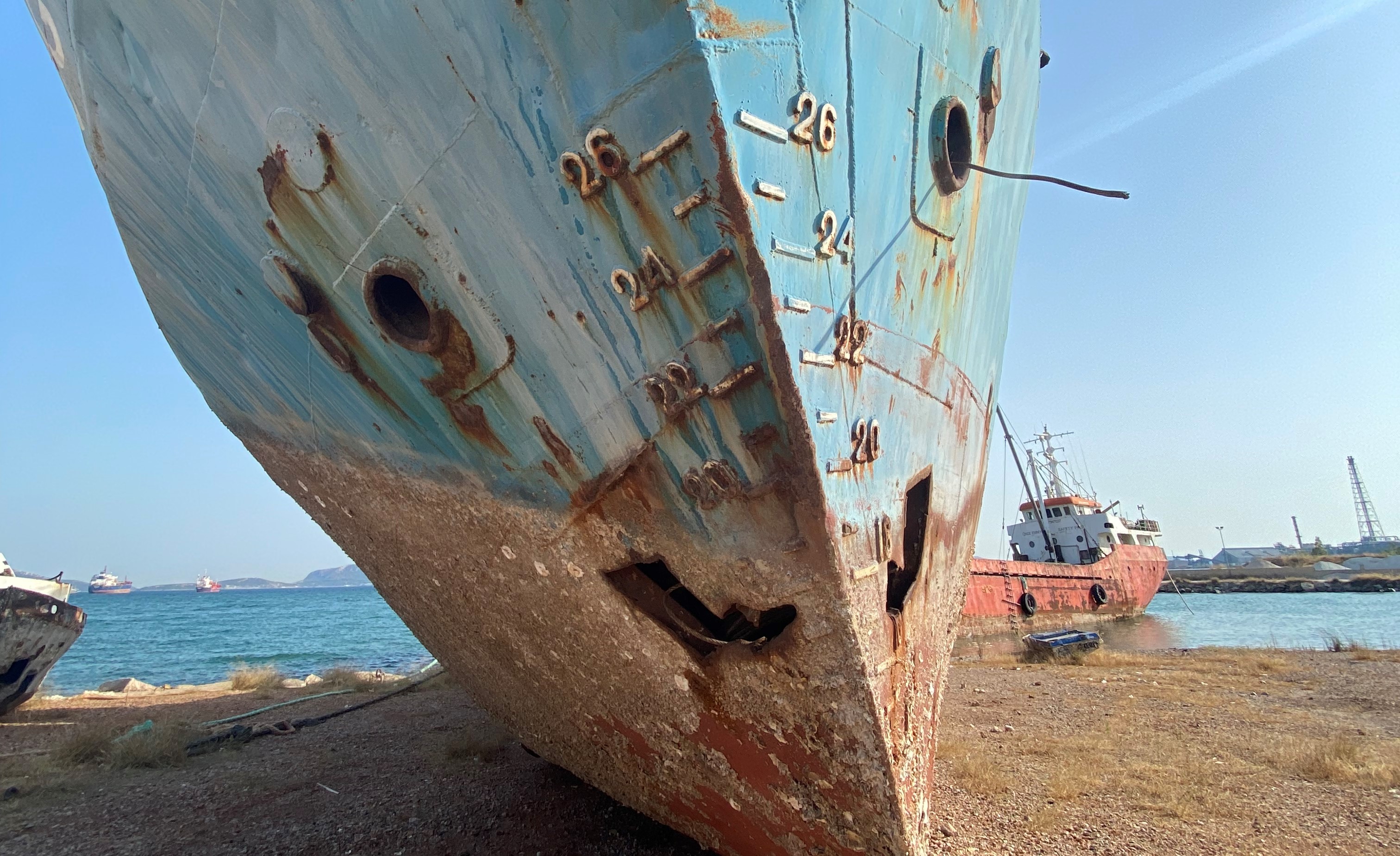
As part of culture360 recent Call for articles, Chris Baldwin explores how the opening art event of Eleusis 2023 (European Captial of Culture) will mark as a defining point for Elefsina, Greece.
Elefsina is often described as a suburb of Athens. But this is not strictly true. The 22 kilometres which separate the site of the Pantheon in central Athens to the coastal industrial port of Elefsina could be a world apart. Fields and hills, and a route of an ancient pilgrimage, separate the two places. Even though Athens has a limitless, sprawling periphery with endless industrial areas, heavy traffic, countless car sales rooms, warehouses, and coffee wholesalers along the road, by the time you reach Elefsina you have also seen the sea and encountered the regions rocky landscapes.
Taking the coast road north out of Elefsina one immediately passes through the middle of a giant oil refinery, with high security fences and multiple cameras presumably monitoring every car and every movement. A few kilometres further along this startling coastline, with its arid fauna and cyan blue water, a gigantic sea-cruise liner, the Mediterranean Sky, lies on its side, half submerged in a few metres of water having been towed there, abandoned and then grounded. In 2003 the ship took on water and now lies, as if a beached whale, only a couple of dozen metres away from the rocky shore silently waiting for the future to decide its destiny.
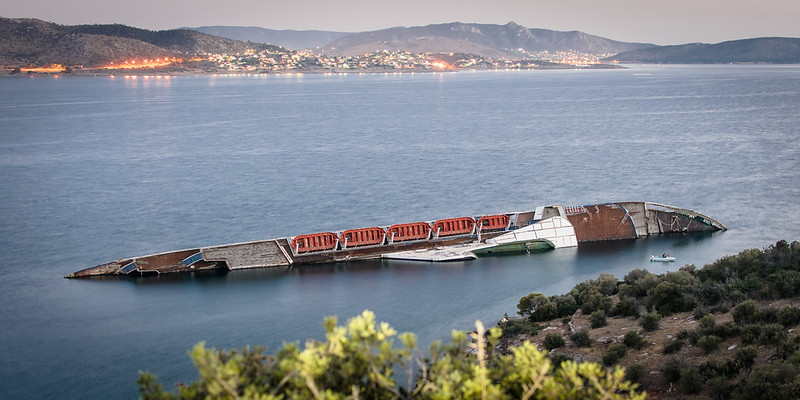
"mediterranean sky" © Martin Sikora, Flickr
Eleusis, to use its ancient name, was the the site for the Eleusinian Mysteries initiations held every year for the cult of Demeter and Persephone - the most famous of the secret religious rites of ancient Greece. The Mysteries are represented by the myth of the abduction of Persephone from her mother Demeter by the king of the underworld Hades. Not coincidently, the myth is described as acycle with three phases: the descent (loss), the search, and the ascent, with the main theme being the ascent of Persephone and the reunion with her mother. Re-birth and transition are the underlying themes of this myth.
Elefsina is now a living, breathing metaphor of the twentieth century’s apocalyptic relationship with the environment. The massive oil refinery is not the only symbol of our global inertia to move away from what is killing us all. Cement factories, oil factories, paint and chemical plants were all built here. As a result, many humanistic and creative things also happened of course.
The city generated jobs, economic growth, and a rich community life for many immigrant newcomers. But that period of development is over now, and the city is beginning the long journey of redefining its torrid relationship with the sea, air, and soil.
A plan to remove the multiple sea wrecks around the bay is being progressed, industrial sites are being transformed into cultural and community centres. The sea is increasingly considered to have its own dignity, its own oxygen, be its own complex ecological system of which we humans are simply part rather than masters. For if the sea breathes, we breathe. A transition has begun.
In 2023 Elefsina, Greece, will become the European Capital of Culture [i] using the title Mysteries of Transition. As a result, a conversation about past, present and future have an opportunity to be local, national, and European. And it is the story which counts here. The transition story of Elefsina can become a story for us all.
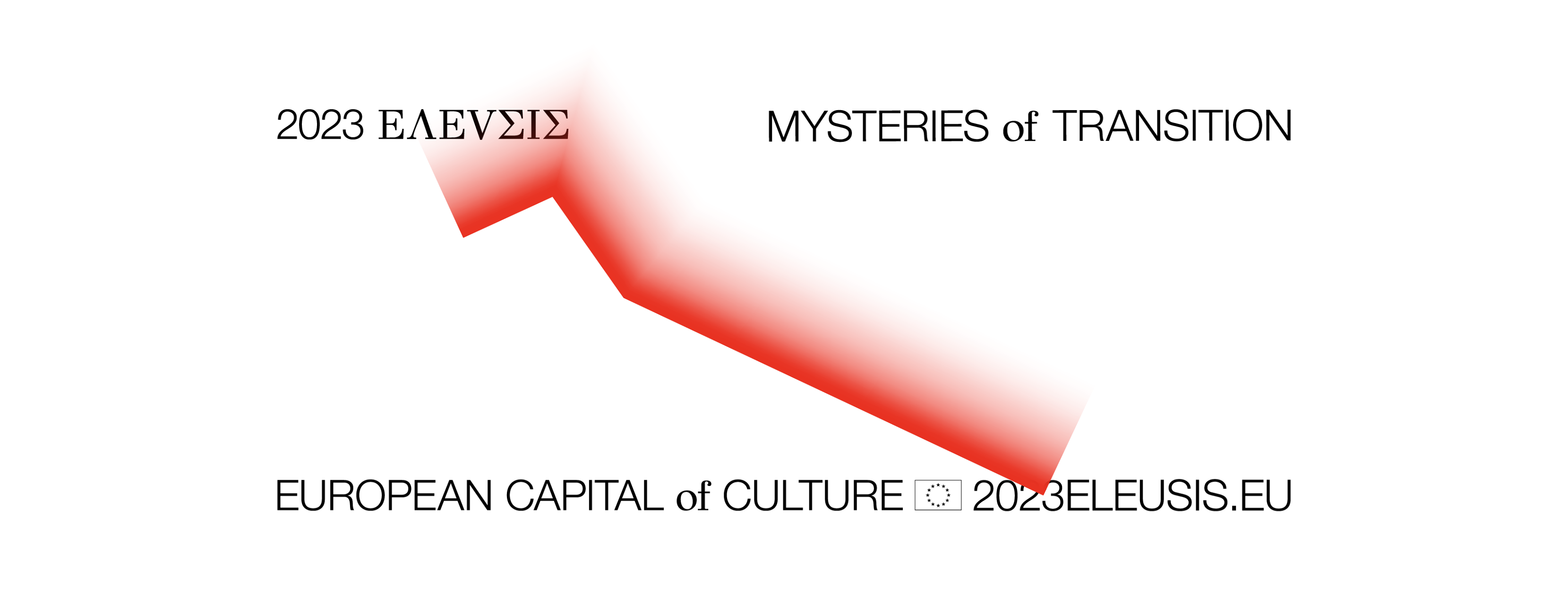
2023 Eleusis European Capital of Culture
Let us imagine, for a moment, that we draw a graph of artists and cultural practitioners’ engagement in the politics of the environment throughout the twentieth century and into the twenty-first. Such a graph would, at first, resemble a chart of greenhouse emissions with a few dramatic upsurges. For example, the industrial and chemical impact of the first world war also led to a significant increase in the number of artistic projects, poetry, film, literature, which addressed this catastrophe. But then something strange occurs. The chart of greenhouse emissions radically diverges from the chart of associated artistic and cultural output. Despite artistic engagement in so many political and progressive causes in the 20th century, cultural and artistic work seems to remain dislocated, disinterested even, in the catastrophe on our very doorstep. [ii]
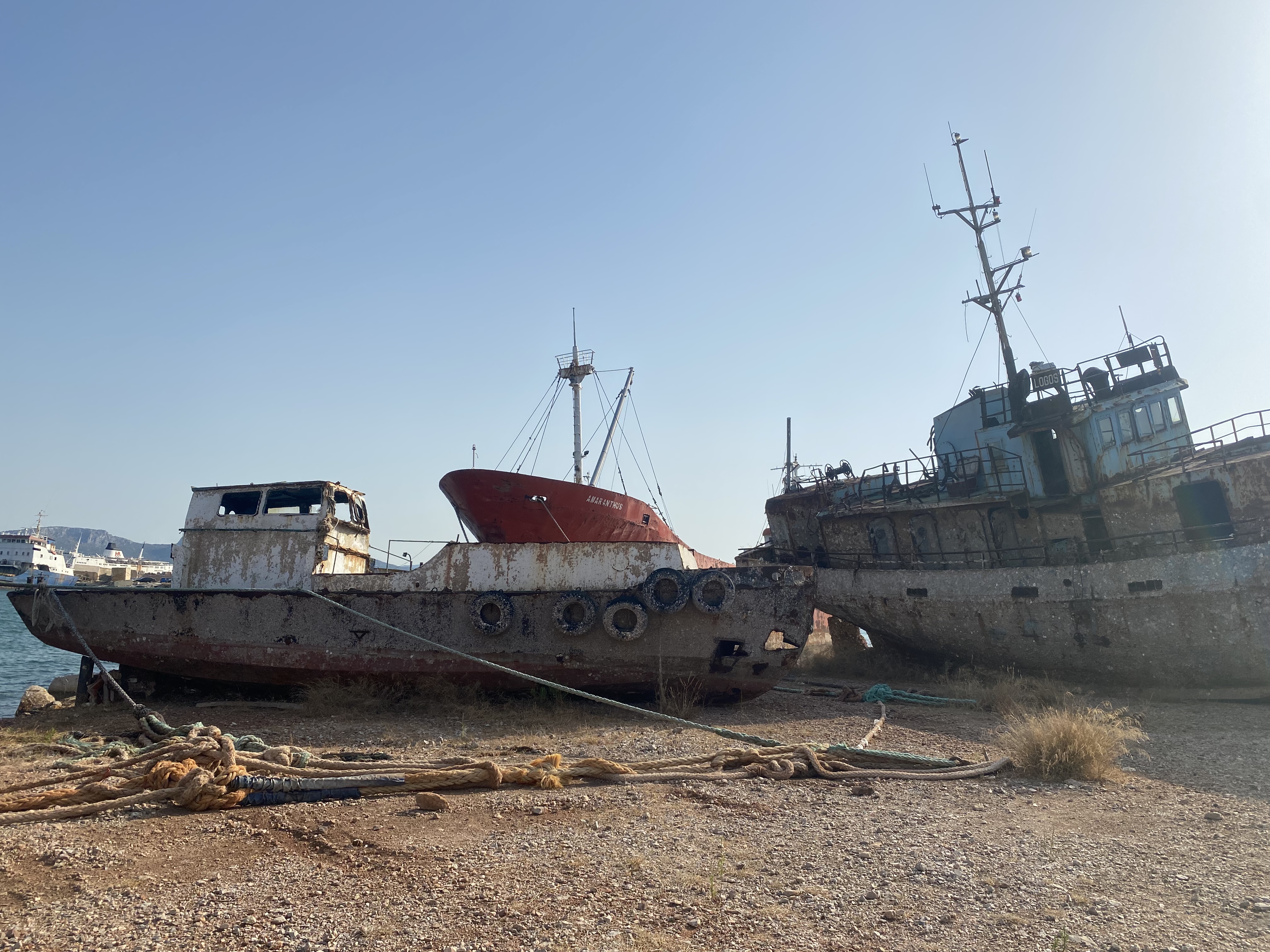
Boats at Elefsina © Petko Tanchev
In the last decade this divergence has begun to decline. Let me give one example from my own life. During the Covid pandemic I worked closely with Istria’s Slovenian coastline on a bid to become European Capital of Culture in 2025. When examining and responding to the climate emergency was identified as the principal line in our work many of the most exciting artists in Slovenia and across the whole of Europe willingly and energetically contributed astonishing projects about the environment to our portfolio of ideas. And this is not an isolated case. Dozens of European Capital of Culture candidates and winners have all identified human relationships to the environment as being central to their initiative.
In his book, The Great Derangement, Amitav Ghosh makes the case that there is no more vital task for artists and writers than to create a space for apocalyptic thinking as a way of delaying, if not averting, the climate horrors we must now confront. European Capitals of Culture, and other cultural initiatives of course, have responsibility of looking for ways in which trust can be built with audiences, spectators, participants, artists, indeed all citizens, for these conversations and imaginative endeavours to take place.
Culture does not shape the climate, but it undoubtedly shapes the climate debate. While scientists explore the mechanics and the data of climate change it is social scientists who show why people support or reject their conclusions. Artists have a role here as we build the transformative stories which can help humanise the implications of the data [iii]. As humans we all tend to develop world views consistent with the values held by others within the groups with which we self-identify.
Artists and educators are no exception as since the beginning of time we have created or written the stories and myths which reinforce or question our notions of identity, and by implication our world views. Are we helping understand what is at stake? Are we placing our weight behind the need for transformation at every level of our relationship with the environment? Or are we part of some disguising mechanism? Our stories are not neutral innocents. For if the sea breathes, we breathe.
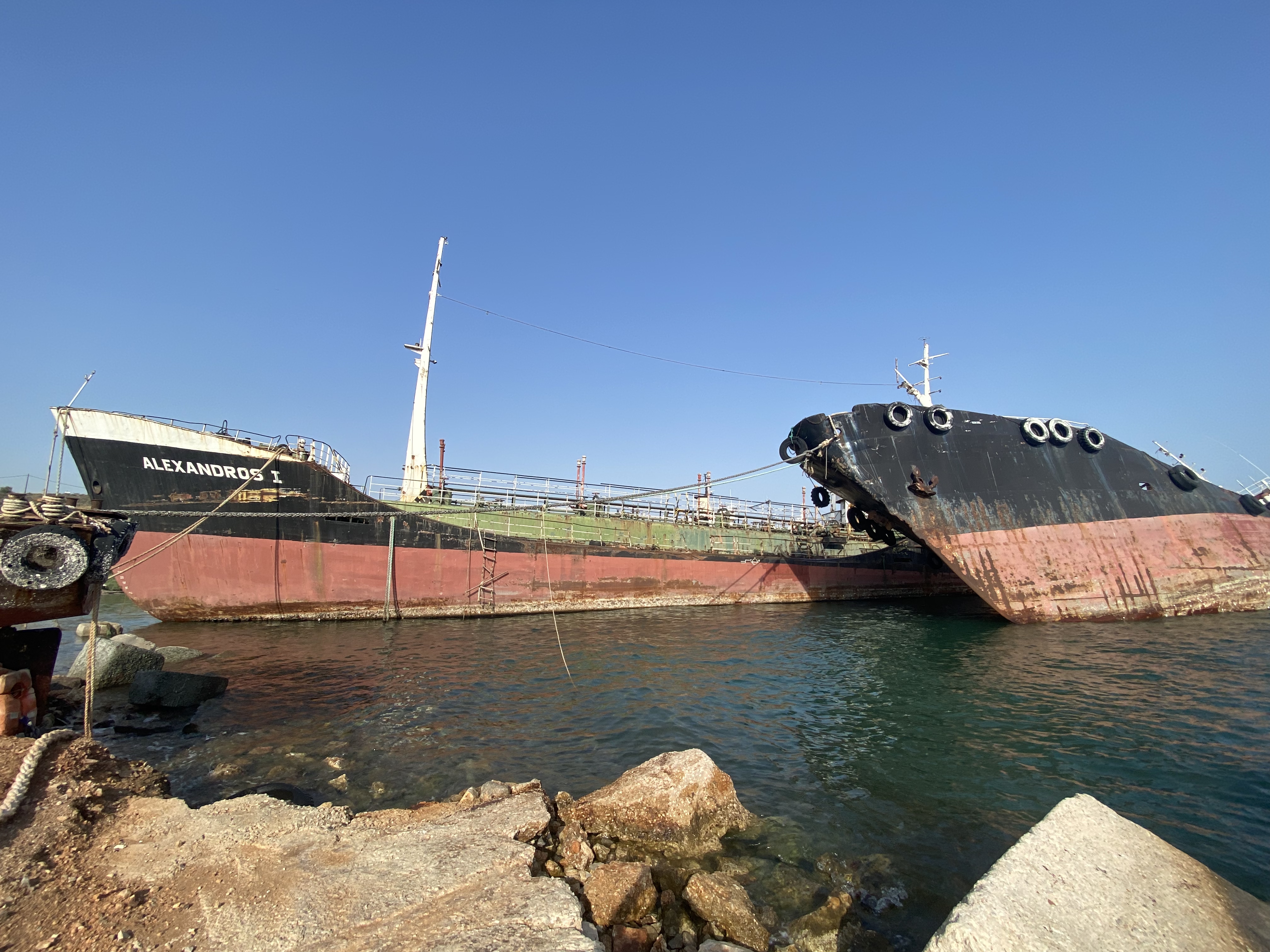
Boats at Elefsina © Petko Tanchev
References
[i] See https://2023eleusis.eu/?lang=en
[ii] Amitav Ghosh The Great Derangement (2016) puts it down to the way artists have been more interested in modernism than our relationship with the environment.
[iii] Andrew J. Hoffman How Climate Shapes the Climate Change Debate (2015)
Cover photo credit: Petko Tanchev
About the Author
Chris Baldwin is the artistic director of the opening weekend and main, sea based, performance for Eleusis2023. He was artistic director of big events for Kaunas2022 (European Capital of Culture, Lithuania), was Creative Director of Galway2022 (European Capital of Culture, Ireland) and previously curator of interdisciplinary performance for Wroclaw2016 (European Capital of Culture, Poland).
Similar content
24 Aug 2019
31 Aug 2013
deadline
30 Oct 2022
deadline
11 Sep 2016
posted on
07 Mar 2022

